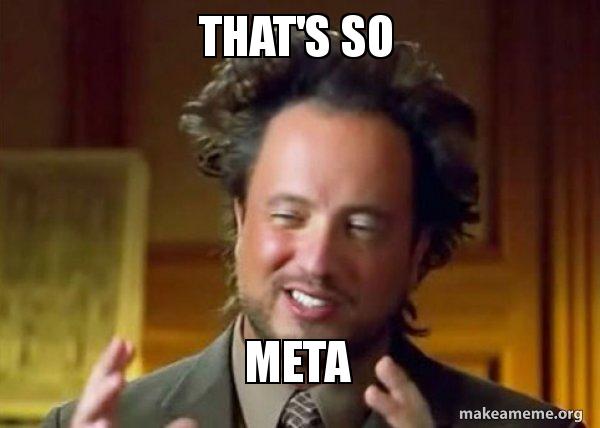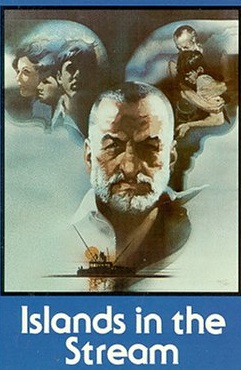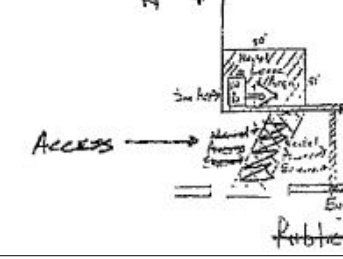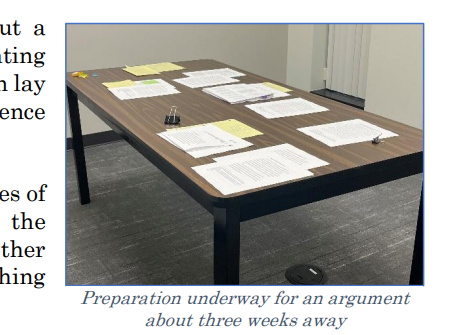 The supreme court has approved a new set of statewide rules about local court rules. A comment to new Tex. R. Civ. P. 3a summarizes their key features:
The supreme court has approved a new set of statewide rules about local court rules. A comment to new Tex. R. Civ. P. 3a summarizes their key features:
Monthly Archives: September 2022
In a “failure-to-rule” mandamus proceeding about counsel’s motion to withdraw, the Fifth Court held:
“We do not adopt a ‘six-month rule’ or ‘ten-month rule’ or fix any similar bright-line demarcation for cases in which parties seek mandamus relief to compel expeditious disposition of motions. We do not repeat the myriad considerations, referenced above, that guide decision of each unique mandamus petition. All we hold is that—based on particular facts and circumstances here—ten months from filing the motion to withdraw and six months from the trial court’s hearing of the motion without ruling presents an unreasonable time warranting mandamus relief.”
In re Robinson, No. 05-22-00579-CV (Sept. 23, 2022) (mem. op.)
Reminding that the Family Code has some unique features not found in the more general Texas Arbitration Act, “which are expressly designed to avoid subjecting parties in divorce cases to arbitration when the contract containing the agreement to arbitrate is invalid or unenforceable,” the Texas Supreme Court held in In re Ayad that “[t]o comply with these statutes, a trial court must: (1) try the issue by giving each party an opportunity to be heard on all validity or enforceability challenges to the contract containing the arbitration clause, as well as an opportunity to offer evidence concerning any factual disputes or questions of foreign law material to the challenges; and (2) decide the challenges before ordering arbitration.” No. 22-0078 (Sept. 23, 2022) (per curiam).
The agreement at issue was an “Islamic Pre-Nuptial Agreement,” but the Court’s ruling did not require it to address any matters about the substance of that agreement.
 After a recent ruling about appropriate jurisdictional discovery in a stream-of-commerce case, the Fifth Court reviewed the merits of a special appearance in another such matter in Far East Machinery Co. v. Aranzamendi. Applying the current state of the law, including recent relevant opinions from both the Texas and United State Supreme Courts, the Court found that the record as to the following alleged contacts was insufficient to support personal jurisdiction in Texas over a claim about natural gas leaks from allegedly defective pipe:
After a recent ruling about appropriate jurisdictional discovery in a stream-of-commerce case, the Fifth Court reviewed the merits of a special appearance in another such matter in Far East Machinery Co. v. Aranzamendi. Applying the current state of the law, including recent relevant opinions from both the Texas and United State Supreme Courts, the Court found that the record as to the following alleged contacts was insufficient to support personal jurisdiction in Texas over a claim about natural gas leaks from allegedly defective pipe:
- “arranging for the shipping of its products to the Port of Houston;
- some or all of the pipe was marked “FEMCO HOUSTON TX” and Far East Machinery’s deputy manager admitted Far East Machinery marked the pipe “FEMCO”;
- Far East Machinery has a website accessible in Texas advertising that its products meet certain standards of the American Petroleum Institute, and Far East Machinery stated on the sales documentation that the pipe had been tested and met those specifications;
- Far East Machinery has been involved in litigation in federal court in the Eastern District of Texas; and
- Far East Machinery’s deputy manager travels to Texas once a year.”
No. 05-21-00267-CV (Sept. 13, 2022) (mem. op.) (bullet points added).
Today, a birthday cross-post from sister blog 600Camp:
Today 600Camp celebrates its 11th birthday! For old times’ sake, here is the 10th-anniversary post from last year. Stir up some Shrimp Remoulade to celebrate properly!
 In In re Smith & Nephew Orthopaedics Ltd., a dispute about “stream of commerce” personal jurisdiction, the Fifth Court observed:
In In re Smith & Nephew Orthopaedics Ltd., a dispute about “stream of commerce” personal jurisdiction, the Fifth Court observed:
As the Texas Supreme Court recently explained in Christianson Air Conditioning and Plumbing, a products liability case, ‘information sought in jurisdictional discovery must be essential to prove at least one disputed factor that is necessary to the plaintiff’s proposed theory or theories of personal jurisdiction.’ In that case, the supreme court observed that simply inserting the phrase ‘in Texas’ or ‘in Texas field conditions’ into a topic, as the plaintiffs in that case did, would not make it essential to prove specific jurisdiction.”
(citations omitted). Applying those principles, the Court reviewed ten corporate-representative deposition topics and held: “[T]he topics are too broad as they seek non-essential information that will not support [Plaintiffs’] stream-of-commerce plus theory.” No. 05-22-00495-CV (Sept. 16, 2022) (mem. op.).
Among many other issues, a question in LSC Towers, LLC v. LG Preston Campbell, LLC was whether a lease unambiguously foreclosed an access-easement claim:
 In a (literally) picture-perfect description of ambiguity, the Fifth Court found this diagram ambiguous when “what might be a drawn pathway leading to the cell-tower lot from the south is scratched out, the word ‘Access’ with an arrow pointing to that same area is not scratched out.” No. 05-20-00433-CV (Aug. 30, 2022) (mem. op.).
In a (literally) picture-perfect description of ambiguity, the Fifth Court found this diagram ambiguous when “what might be a drawn pathway leading to the cell-tower lot from the south is scratched out, the word ‘Access’ with an arrow pointing to that same area is not scratched out.” No. 05-20-00433-CV (Aug. 30, 2022) (mem. op.).
An unusual application of Hughes tolling appeared in White Nile Software v. Travis. The issue of who was entitled to act on behalf of a potential legal-malpractice client remained unresolved for a whopping seven years:
“Thus, rather than coming to a conclusion in 2011, White Nile’s legal malpractice claims in state court were in a legal limbo while Mandell’s bankruptcy proceedings continued, pending a final determination of authority or capacity to take action on behalf of White Nile … This issue was only resolved when the order of the bankruptcy court that Mandel had no shares in White Nile became final in October 2018.”
The Fifth Court concluded that this potential claims was tolled, quoting Hughes: “Where “a person is prevented from exercising his legal remedy by the pendency of legal proceedings, the time during which he is thus prevented should not be counted against him in determining whether limitations have barred his right.” No. 05-20-00354-CV (Aug. 29, 2022) (mem. op.).
The appellee in Hartsfield v. Hartsfield Cabinet LLC relied on a detailed list of line-items to obtain summary judgment on damages. The Fifth Court was left wanting:
Here, there is no specificity or supporting documentation. The affiant fails to specify the owner of the tools, files, and computers, which files and tools were allegedly stolen and given away, or the software that was allegedly destroyed or made unstable on the laptops that were allegedly taken and returned. Although the affiant avers that he consulted with an unidentified forensic expert who concluded that software had been destroyed, the expert is not identified, nor is the cost of replacing and re-programming the software explained or substantiated.
No. 05-21-00896-CV (Sept. 8, 2022) (mem. op.).
The dispute in In re Brown involved a trial subpoena to a corporate-representative witness. The court of appeals granted mandamus relief, analogizing Tex. R. Civ. P. 199 to Fed. R. Civ. P. 30(b)(6). The corporation, however, had also cited the general subpoena rule – Tex. R. Civ. P. 176 – and the supreme court remanded for consideration of those arguments:
Brown raised the argument that corporate-representative trial subpoenas are available under Rule 176 in both the trial court and the court of appeals. Brown observes that Rule 176.6(b) states that a corporation may “designate one or more persons to testify on its behalf as to matters known or reasonably available to the organization” in response to a valid subpoena “commanding testimony.” Tex. R. Civ. P. 176.6(b). He further notes that an appropriate corporate-representative subpoena may command a person to “attend and give testimony at a . . . trial.” Tex. R. Civ. P. 176.2(a).”
No. 20-0992 (Tex. Sep. 9, 2022).
In 1915, Albert Einstein published an article about the structure of spacetime as defined by general relativity. In 2022, the Fifth Court reviewed the structure of spacetime as defined by the “time-notice” rule for premises-liability cases, finding that rule unsatisfied with this proof:
Nicholson testified that she had been in the store “maybe a minute” before she fell. She testified that there was “a substance on the floor” that caused her to fall, but she did not know what the substance was “because it was clear. It didn’t have, like, a color to it. It was a clear substance on the floor.” She testified that she was not sure how large the substance was before she fell because after she fell, “it was on my clothing. Like, my clothing was wet, so I’m not sure how much was down on the floor.”’
Nicholson v. Wal-Mart Stores, Inc., No. 05-21-00110-CV (Sept. 7, 2022) (applying Wal-Mart Stores, Inc. v. Reece, 81 S.W.3d 812, 814 (Tex. 2002)).
 Newsom, Terry, & Newsom LLP v. Henry S. Miller Commercial Co. reviewed the trial of an attorney-malpractice claim based on an untimely designation of a responsible third party. The Fifth Court found reversible charge error in the following jury instruction as an impermissible comment:
Newsom, Terry, & Newsom LLP v. Henry S. Miller Commercial Co. reviewed the trial of an attorney-malpractice claim based on an untimely designation of a responsible third party. The Fifth Court found reversible charge error in the following jury instruction as an impermissible comment:
In resisting a motion to strike a designation of a responsible third party, the Terry Defendants would not have been required to prove the plaintiffs’ case that there was fraud in the underlying transaction. They could rely on evidence of the proposed transaction, its failure, and the identity of a responsible third party as the defaulting buyer in resisting a motion to strike a designation of a responsible third party.
No. 05-20-00379-CV (Aug. 31, 2022) (mem. op.).
The Texas Supreme Court granted review in United Rentals v. Evans, a challenging Batson issue. The supreme court does not take many jury-selection cases, much less Batson ones, so the opinion promises to be of broad general interest for civil trial practice.
 For August’s end-of-month summary by the Fifth Circuit Bar Association, I contributed a one-page article about preparation for oral argument, complete with action picture (right), joining a similar one contributed last month by Association president Tom Flanagan of New Orleans. If you belong to the BAFFC, I encourage you to write one of your own! And if you don’t belong you should, it’s a great resource and features an outstanding body of work about the Fifth Circuit by the able Walter Woodruff, also of New Orleans.
For August’s end-of-month summary by the Fifth Circuit Bar Association, I contributed a one-page article about preparation for oral argument, complete with action picture (right), joining a similar one contributed last month by Association president Tom Flanagan of New Orleans. If you belong to the BAFFC, I encourage you to write one of your own! And if you don’t belong you should, it’s a great resource and features an outstanding body of work about the Fifth Circuit by the able Walter Woodruff, also of New Orleans.
